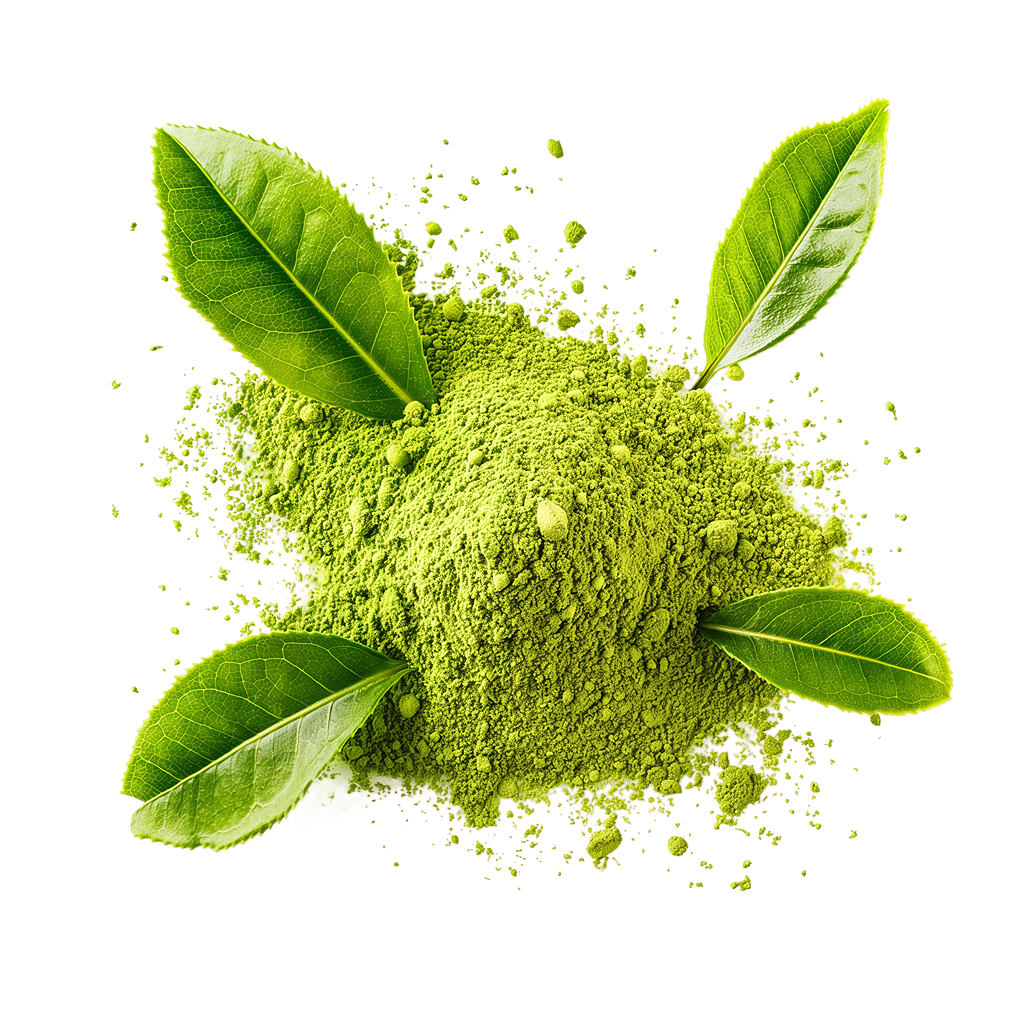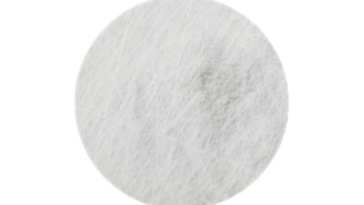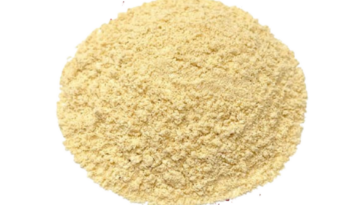Green tea powder, also known as matcha, has its origins deeply rooted in Chinese and Japanese history. The cultivation and consumption of green tea date back centuries, with China being the birthplace of this cherished beverage. Legend has it that green tea was first discovered accidentally by Emperor Shen Nong around 2737 BC when tea leaves blew into his pot of boiling water. However, it wasn’t until the Tang Dynasty (618-907 AD) that the method of grinding tea leaves into powder became popular. This powdered form of tea, called “whisked tea” or “foam tea,” was enjoyed by Chinese monks and aristocrats alike for its rich flavor and ceremonial significance.
In the 12th century, Japanese Zen monks studying in China brought back the practice of drinking powdered green tea to Japan. Over time, this practice evolved into the renowned Japanese tea ceremony, or chanoyu, which placed great emphasis on the preparation and presentation of matcha. Matcha became an integral part of Japanese culture and was used in religious rituals, social gatherings, and everyday life. Today, Japan is renowned for its high-quality matcha production, with regions like Uji and Nishio being particularly famous for their superior matcha varieties. Green tea powder continues to be cherished not only for its unique taste but also for its health benefits and cultural significance across the globe.
Vitamins & Minerals:
Green tea powder, derived from the leaves of the Camellia sinensis plant, is renowned for its rich nutrient profile, which includes various vitamins and minerals. Here’s a comprehensive list of the vitamins and minerals commonly found in green tea powder:
- Vitamin C: Green tea powder contains vitamin C, also known as ascorbic acid, which is a powerful antioxidant that supports immune function, collagen production, and helps in the absorption of iron. It scavenges free radicals, reducing oxidative stress and the risk of chronic diseases.
- Vitamin K: Vitamin K is essential for blood clotting and bone health. It helps regulate calcium in the body, ensuring it is deposited in bones and teeth rather than arteries, thus reducing the risk of osteoporosis and cardiovascular diseases.
- Vitamin E: Another potent antioxidant found in green tea powder is vitamin E, which protects cell membranes from damage caused by free radicals. It supports immune function and skin health, promoting youthful and radiant skin.
- Vitamin B2 (Riboflavin): Green tea powder is a good source of riboflavin, which plays a crucial role in energy production, metabolism, and the maintenance of healthy skin, eyes, and nerves.
- Folate (Vitamin B9): Folate is important for DNA synthesis and repair, cell division, and the production of red blood cells. It is particularly vital during pregnancy for fetal development and reduces the risk of neural tube defects.
- Potassium: Potassium is an essential mineral that helps regulate fluid balance, nerve function, and muscle contractions. It also plays a role in maintaining healthy blood pressure levels and reducing the risk of stroke and heart disease.
- Manganese: Manganese is necessary for the metabolism of carbohydrates, amino acids, and cholesterol. It also acts as a cofactor for antioxidant enzymes, protecting cells from oxidative damage.
- Fluoride: Green tea powder contains fluoride, which is beneficial for dental health as it helps prevent tooth decay by strengthening tooth enamel and inhibiting the growth of cavity-causing bacteria.
In summary, green tea powder is packed with essential vitamins and minerals that contribute to overall health and well-being. From antioxidants like vitamin C and E that combat oxidative stress to vital nutrients like vitamin K and potassium that support bone health and regulate blood pressure, green tea powder offers a plethora of benefits. Incorporating this nutrient-rich powder into your diet can help boost immunity, promote healthy aging, and reduce the risk of various chronic diseases.
Probiotic, Prebiotic, or Postbiotic:
Green tea powder, made from ground green tea leaves, contains various compounds that can potentially influence gut health, but it’s not typically classified as a probiotic, prebiotic, or postbiotic in the same way as certain foods or supplements.
- Probiotic: Probiotics are live microorganisms that provide health benefits when consumed in adequate amounts. Green tea powder itself doesn’t contain live microorganisms, which are characteristic of probiotics. However, green tea does contain certain compounds like polyphenols (such as catechins) and antioxidants that can promote the growth of beneficial gut bacteria indirectly, but it’s not in the same category as probiotics.
- Prebiotic: Prebiotics are substances that stimulate the growth and activity of beneficial microorganisms, primarily bacteria, in the gut. While green tea powder contains some dietary fibers and polyphenols that could potentially act as prebiotics, its prebiotic effects are not as well-established as other foods like chicory root, garlic, or onions, which are more commonly recognized as prebiotics.
- Postbiotic: Postbiotics are metabolic byproducts or substances produced by probiotic microorganisms during fermentation or metabolic processes. These include short-chain fatty acids, enzymes, organic acids, and certain peptides. Green tea powder may contain compounds that could influence the production of postbiotics indirectly through its effects on gut microbiota, but it’s not directly considered a postbiotic itself.
In summary, while green tea powder may have some beneficial effects on gut health due to its polyphenol content and other compounds, it’s not typically categorized as a probiotic, prebiotic, or postbiotic in the same way as certain foods or supplements that specifically target gut microbiota health.
Dietary & Health Information:
Green tea powder, also known as matcha, is derived from finely ground green tea leaves. It contains high levels of antioxidants, particularly catechins, which are believed to have various health benefits. Here’s some dietary and health information about green tea powder:
- Antioxidant properties: Green tea powder is rich in polyphenols, particularly catechins like epigallocatechin gallate (EGCG), which have potent antioxidant properties. These antioxidants help neutralize harmful free radicals in the body, reducing oxidative stress and inflammation, which are linked to various chronic diseases.
- Weight management: Some studies suggest that green tea powder may aid in weight management by boosting metabolism and increasing fat oxidation. However, the evidence is mixed, and results may vary depending on individual factors such as diet and lifestyle.
- Heart health: Regular consumption of green tea powder may help improve heart health by lowering LDL cholesterol levels and reducing the risk of heart disease. The antioxidants in green tea may also help improve blood vessel function and lower blood pressure.
- Brain health: The caffeine and L-theanine content in green tea powder may have beneficial effects on brain function, improving mood, alertness, and cognitive performance.
- Cancer prevention: Some studies suggest that the antioxidants in green tea powder may help reduce the risk of certain types of cancer, although more research is needed to confirm these findings.
- Maximum intake per day: While green tea powder can offer health benefits, it’s essential to consume it in moderation due to its caffeine content. Excessive caffeine intake can lead to side effects such as insomnia, jitteriness, and increased heart rate. The recommended maximum intake of green tea powder varies depending on individual tolerance to caffeine. However, it’s generally advisable to limit consumption to around 2-3 cups (240-350 mg of caffeine) per day for most adults. Pregnant women, individuals with caffeine sensitivity, or those with certain medical conditions should consult with a healthcare professional before consuming green tea powder.
- Quality and sourcing: When purchasing green tea powder, it’s essential to choose high-quality, organic products to ensure purity and avoid exposure to pesticides and contaminants. Look for reputable brands that source their tea from reputable suppliers and undergo rigorous testing for quality and safety.
As with any dietary supplement, it’s crucial to incorporate green tea powder into a balanced diet and healthy lifestyle for maximum benefit. Additionally, individual responses to green tea powder may vary, so it’s essential to listen to your body and adjust consumption accordingly.




 No products in the cart.
No products in the cart.